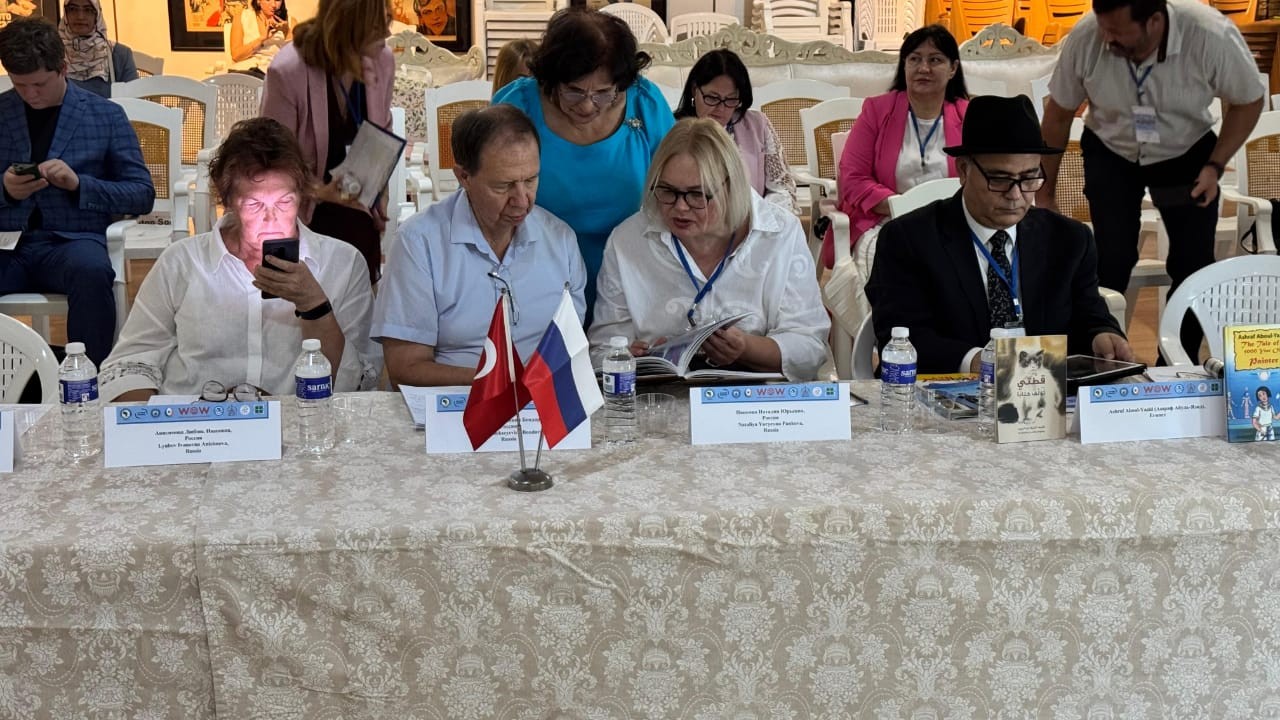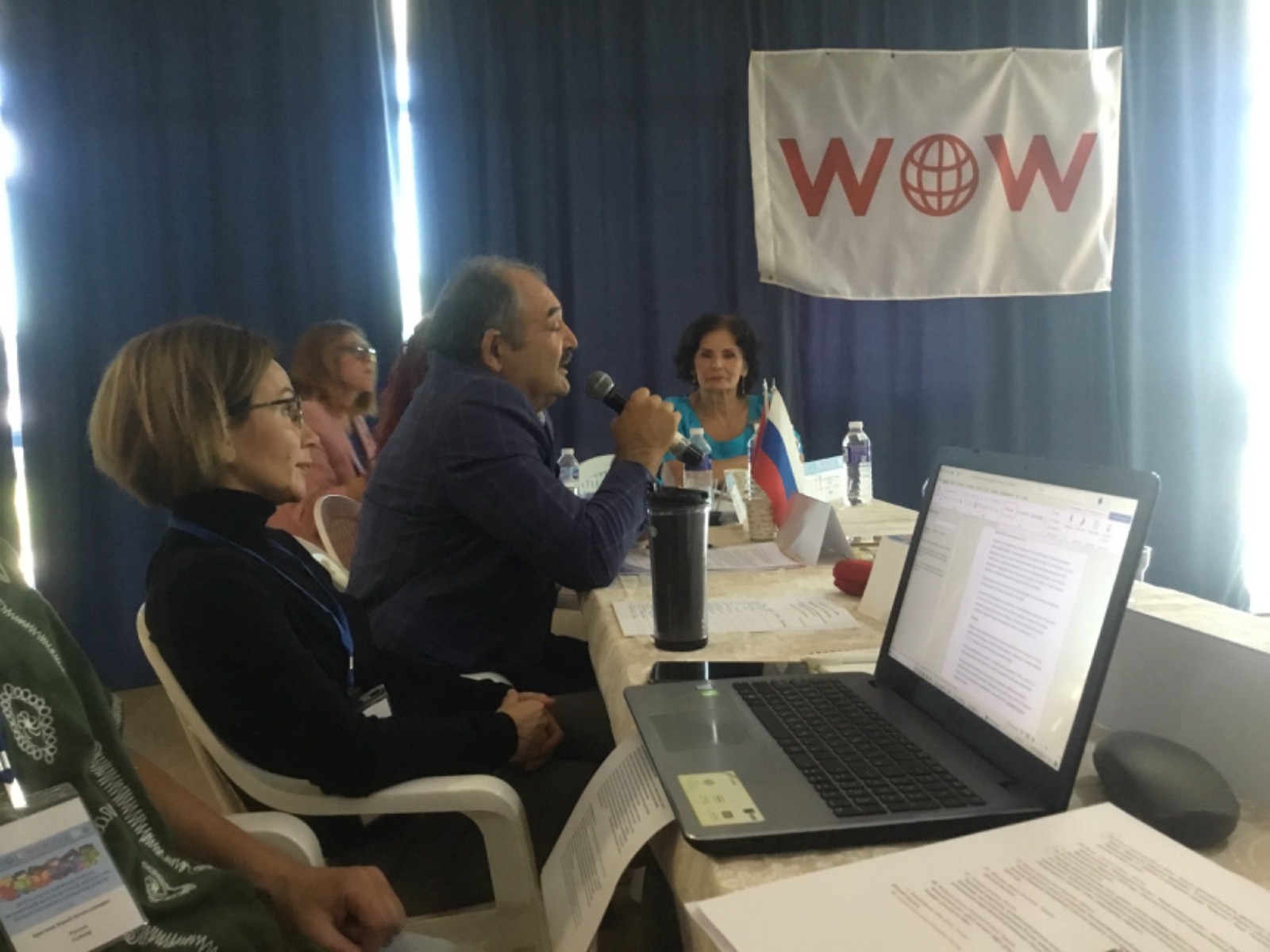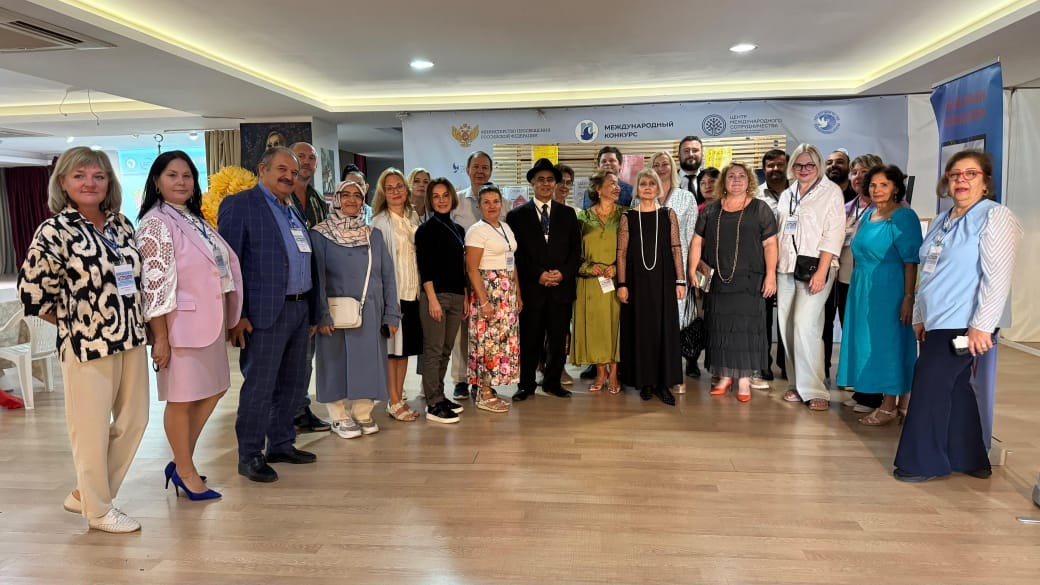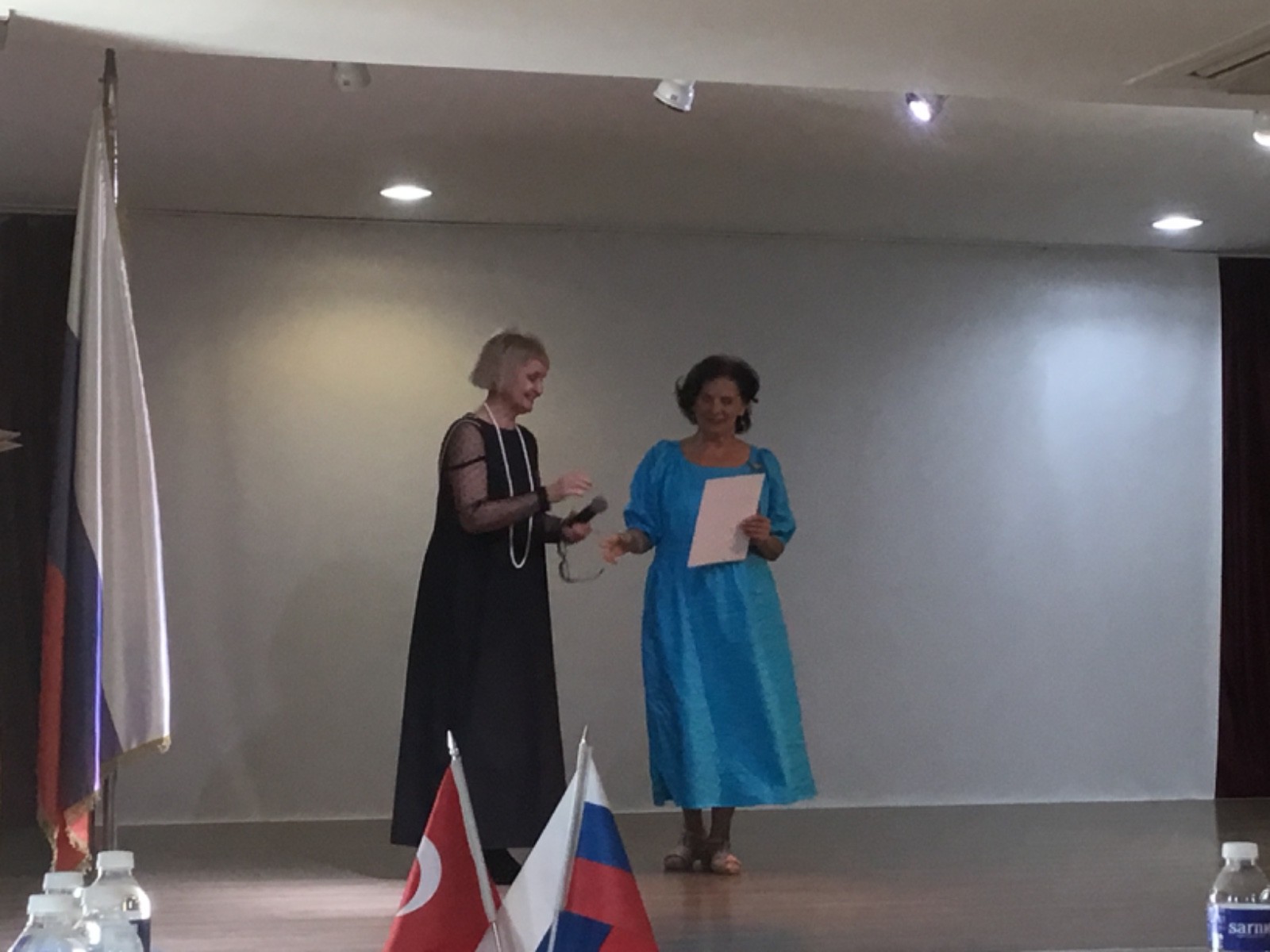The First World Forum of Children's Literature, held from October 25 to November 3 in Antalya, Turkey, has become an event reshaping the approach to children’s books—their forms, their meaning, and their inner substance.
Organized by the World Organization of Writers (WOW) and led by President Margarita Al, the forum opened with her address, emphasizing the need to look at literature as a special code that combines words and images, culture and meaning, nurturing and shaping young minds through words and visuals. The forum brought together writers, artists, publishers, translators, educators, and experts in literature and art from 17 countries, including Turkey, Russia, Abkhazia, Azerbaijan, Ghana, Egypt, India, Nigeria, Kazakhstan, Kyrgyzstan, Colombia, the United Arab Emirates, Tajikistan, Uzbekistan, and South Africa. These participants dedicated these days not to just discussing issues of education and enlightenment but to immersing themselves in the core of children’s literature as a phenomenon that shapes the inner world of future generations.
Among the forum’s participants and honored guests were representatives of international cultural and educational organizations. Opening greetings were delivered by UNESCO Goodwill Ambassador, Doctor of Philosophy, and poet Alexandra Ochirova, and by the Chairperson of the Assembly of Peoples of Russia, and the First Deputy of the General Assembly of the Peoples of Eurasia and Africa, Svetlana Smirnova. The importance of the forum as an international event was further underscored by personal addresses from Vladimir Biryukov, Consul-Counselor of the Russian Federation’s General Consulate in Antalya, Ashraf Dali, President of Asia Journalist Association, Lyubov Dukelskaya, President of the Private Moscow International School, Marina Sorokina, Chairperson of the Russian Society of Antalya, and Alexander Ostroverkh, Director of the Eurasian Book Agency. Their support lent the forum a distinctive status as a cultural convergence, defining strategies for interaction between representatives of different countries and cultures and highlighting a mutual commitment to cultural enrichment.

A Space for Writers, Artists, Publishers, and Educators
In Antalya, the forum became a space where writers, artists, publishers, educators, and philosophers came together to address the essence of children’s books. It was not a place for categorizing formats or comparing old and new traditions but rather a forum where words and visuals combine in a unified effort—to shape personality, culture, and worldview in young readers, developing their inner world through heritage and contemporary interpretations. Boundaries between traditional and digital formats were dismantled, and no distinctions were drawn. Instead of asking “what is better” or “what is more important,” participants considered how to preserve the potency of book content in an ever-changing reality. In this space, each format found its place, while the words within a text continued to shape the worldview of children, whether they were read on paper, seen on a screen, or heard through audio.
The children’s writer, who creates the content, remains the forum’s pivotal figure, and their word is the instrument of cultural and moral transmission, where words become actions and the text becomes the conductor of meaning. As forum participants noted, the children’s writer does more than relay information or describe plots; they embed fundamental cultural codes, the foundation of a worldview. Writers, artists, illustrators—all of whom create the visual world of the book—combine efforts in the mission to nurture. This symphony of words and images was central to the forum, which posed not the question of how to preserve the old or integrate the new, but how to merge them into a single, meaningful tapestry.
The forum addressed concepts, approaches, and the representation and promotion of children’s books on the global stage. Several resolutions were adopted, laying the groundwork for the future development and support of children’s writers and illustrators. The first was the creation of the Children’s Writer’s Charter—a document that will set high standards for children’s literature, outline the role and responsibilities of children’s writers, and establish ethical and moral principles. The Charter serves as more than a set of guidelines; it is a code that enshrines moral and ethical standards, and it will be the foundation upon which authors can continue to develop children’s literature. The Charter also establishes the high status of the children’s writer as a significant figure in nurturing young minds, responsible for setting the ethical and cultural standards conveyed through books. The decision to create the Charter marked an essential step in defining the writer’s role in today’s world, where words remain the fundamental carrier of meaning and formative power, even in the face of technological transformations.

International Expert Advisory Board Established
In addition to the Charter, the forum resolved to establish an International Expert Advisory Board under the World Organization of Writers. This board will oversee the selection and analysis of works by contemporary children’s writers, which will form the basis for the World Encyclopedia of Children’s Literature. This encyclopedia will include works that meet high moral and cultural standards, offering a resource for teachers, parents, and publishers worldwide and providing access to vetted works aimed at nurturing and developing children’s personalities. The Advisory Board will operate through six language-based sections, allowing for the unique cultural and linguistic context of each work. The coordination of each section’s work will be managed by the central office of the organization, and the results of the board’s efforts, including updates and new recommendations, will be openly published on the official website of the World Organization of Writers.
The forum was held as part of Antalya International Book Fair, giving the event special significance. Antalya is rapidly establishing itself as a key platform for international cultural dialogue, attracting writers, artists, and publishers from around the world and reinforcing Turkey’s status as a cultural hub where the boundaries between countries and traditions blur, and literature becomes a universal language for exchanging values. The fair showcased many new books and projects that expanded ideas of how children’s literature can evolve. The forum became a venue for exploring new forms and formats for children’s books and developing approaches that enable children’s literature to not only exist in a new world but to guide, inspire, and nurture.
As the forum drew to a close, on October 31, a presentation will be held where forum participants and Turkish writers are invited. This event will feature the work of the World Organization of Writers and its leading projects aimed at supporting and developing literature for children. The presentation will include three significant books, each of which exemplifies the mission of the World Organization of Writers and the ideas that shaped the forum.

Book Presentations
Alexandra Ochirova, UNESCO Goodwill Ambassador, will present her book “Russian Cosmism”—a work that explores the idea of the inextricable connection between humanity and the universe, embodying the philosophy of cosmism, where spirituality and cultural heritage form the foundation of development. It is more than a philosophical work; it is a vision of humankind and its place in the world, where words serve as a bridge to understanding and respect for existence.
Margarita Al, President of the World Organization of Writers, will present a collection of avant-garde poetry “ManifestAl.” This book is a unique dialogue between the author and reader, where poetry becomes a reflection of contemporary themes, questions of humankind’s place in the world, and its relationship to culture and heritage. The avant-garde form of the book offers readers new ways of understanding poetry as an art that can evoke deep reflection and an awareness of one’s cultural and historical context.
Ashraf Dali, a renowned children’s writer from Egypt, will present his children’s books, which have become symbols of high-quality literature, imparting moral guidance. Dali’s books speak to children about tolerance and cultural diversity and convey these values through accessible and vivid imagery. His works introduce young readers to the ideas of respect for other cultures, making them an essential part of moral development. Ashraf translated two folk tales written by the Tatar poet Abdullah Tukay, and published in Kuwait; (Shurale), and its story with the woodcutter and (The Goat and the Sheep). He also will present (The Story of an Artist Who Lived 5000 Years) , where the author wrote the history of Egyptian Art for across different times for Children.
The presentation of these books at the International Book Fair in Antalya will emphasize the importance of cultural exchange and provide forum participants with the opportunity to see different approaches to children’s literature that reflect the ideas of the forum and the mission of the World Organization of Writers. These books showcase diverse perspectives and approaches but are united in their goal of conveying values that shape children’s worldviews and personalities.
The First World Forum of Children's Literature in Antalya has become an event that opens new possibilities for children’s books, setting an international agenda for dialogue between writers, artists, publishers, and cultural figures from around the world. The forum’s resolutions will be published, and the annual meetings planned in Antalya will become a tradition that supports the development of children’s literature andstrengthens cultural ties

Comments